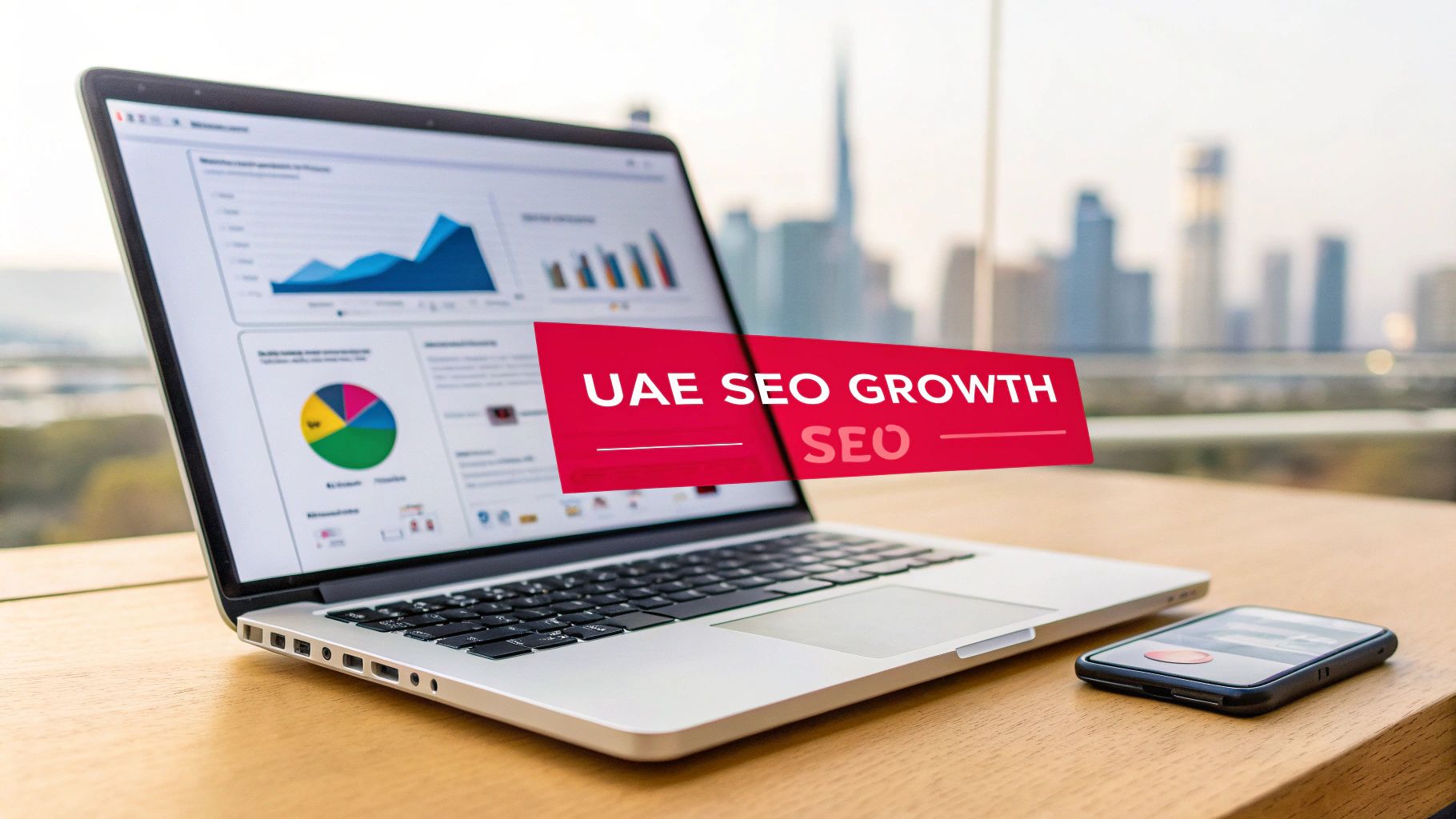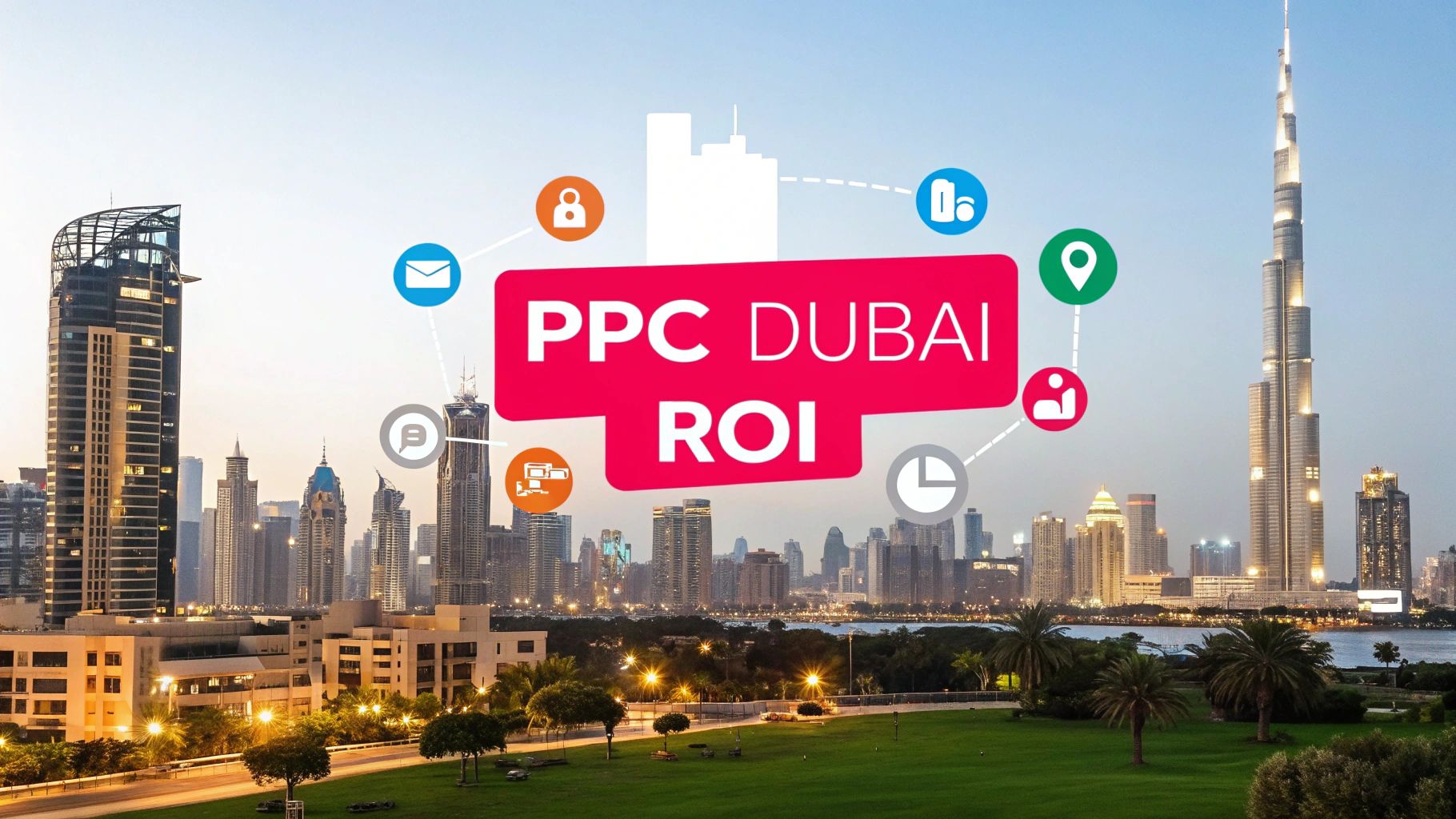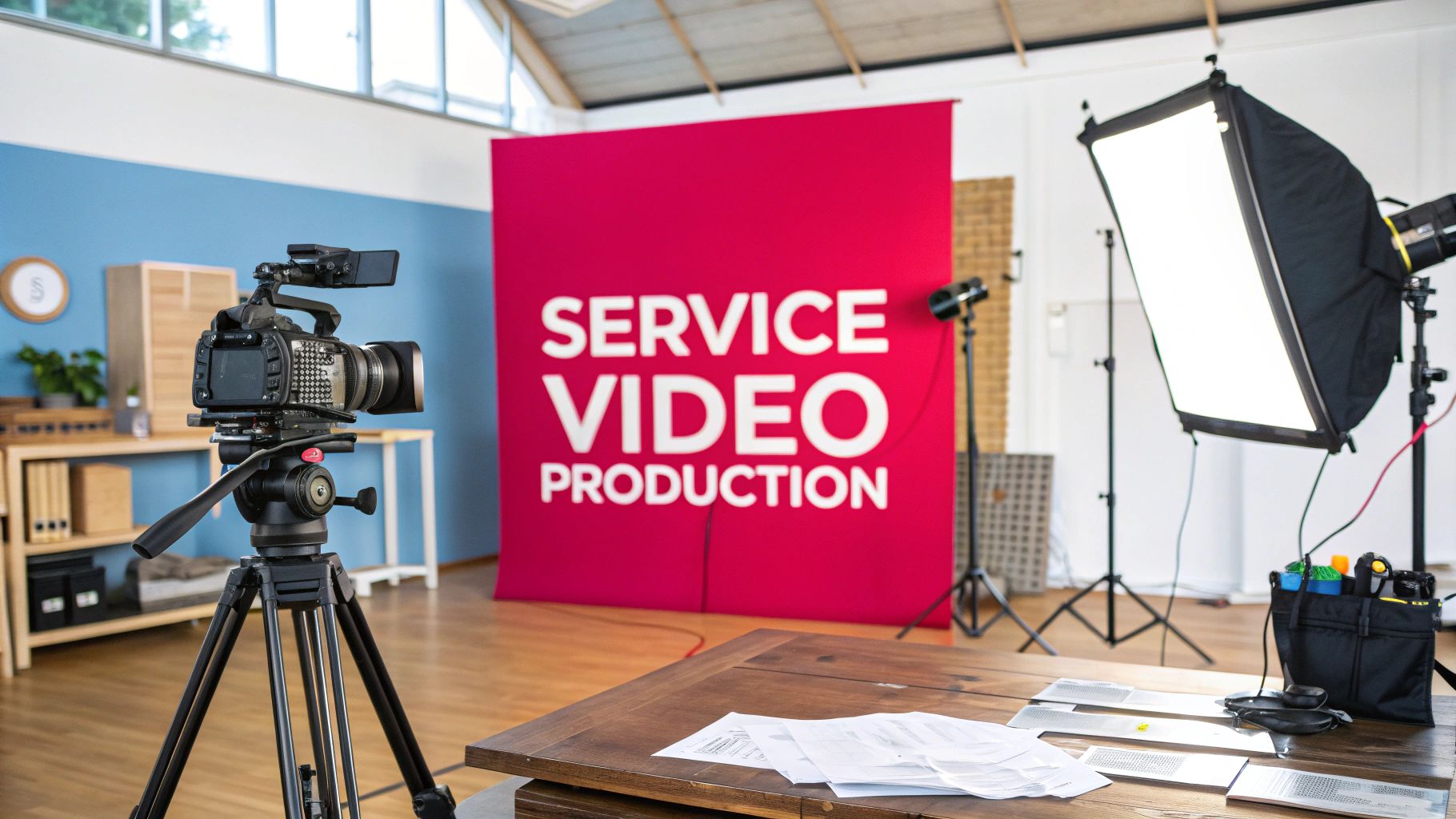Think of a content marketing agency as a strategic extension of your own team. Their job is to create and share genuinely useful content that pulls in the right audience, keeps them interested, and ultimately turns them into customers. It's the difference between making random noise and conducting an orchestra—they bring a cohesive strategy to your marketing efforts, which is absolutely vital for any brand trying to get noticed in the crowded UAE market.
Why Partner With a Content Marketing Agency
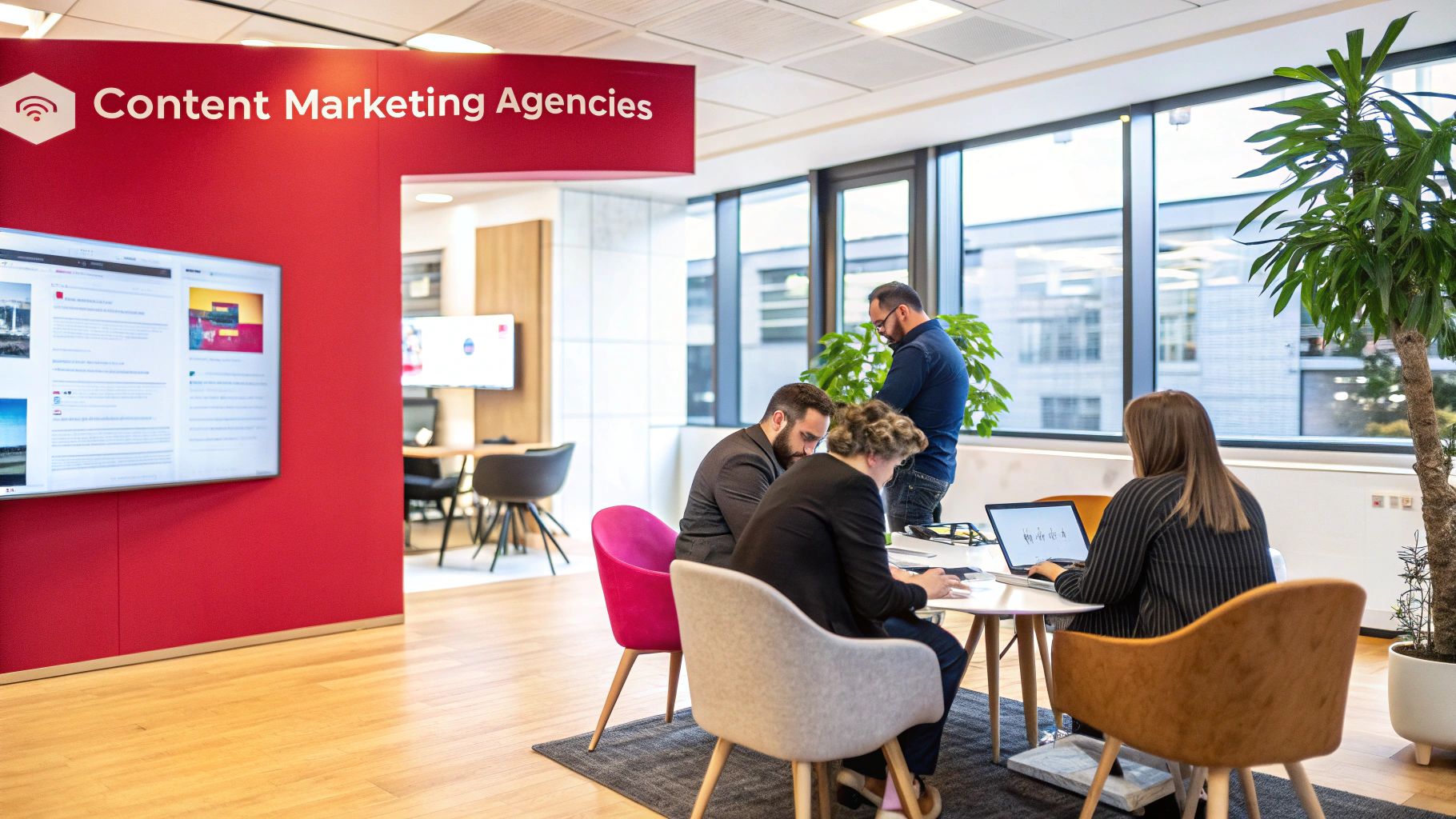
Let's be honest: trying to run your content marketing in-house often feels like juggling with way too many balls in the air. You’re trying to nail down the strategy, write compelling copy, create visuals, optimize for search engines, promote everything, and analyze the results. And you have to do all that while still running your actual business.
This usually leads to burnout, inconsistent results, and a lot of missed opportunities. This is where a content marketing agency comes in. They act as your dedicated team of specialists, bringing focused expertise and the right resources to get the job done properly.
At its core, an agency's role is to build a solid communication bridge between your brand and the people you want to reach. They aren’t just churning out blog posts or random social media updates. Instead, they craft a complete content ecosystem designed to meet your customers at every stage of their journey, guiding them from initial awareness to a final purchase decision.
It's More Than Just Writing Articles
One of the biggest misunderstandings is that agencies just write content. The reality is, their value goes much, much deeper than that. They offer an essential outside perspective, spotting growth opportunities and competitive gaps you might be too close to your business to see.
A great agency brings a whole suite of skills to the table—from high-level strategy and SEO to creative design and video production. Below is a quick breakdown of what they really do.
Core Functions of a Content Marketing Agency
A breakdown of the essential roles an agency plays to deliver measurable business results.
| Role | Description | Impact on Your Business |
|---|---|---|
| Strategist | Analyzes your market, audience, and goals to build a data-backed content plan. | Ensures every piece of content has a clear purpose and works toward your KPIs. |
| Creator | Produces high-quality articles, videos, infographics, and more. | Delivers engaging content that your audience actually wants to consume. |
| SEO Specialist | Optimizes all content to rank in search engines and drive organic traffic. | Makes sure your valuable content gets discovered by the right people. |
| Promoter | Distributes content across channels where your audience spends their time. | Amplifies your reach beyond your existing followers. |
| Analyst | Tracks performance, measures ROI, and refines the strategy based on data. | Turns marketing into a predictable engine for growth, not a guessing game. |
This table shows how an agency is a multi-talented partner, not just a content factory. By outsourcing, you get access to this entire team for a fraction of what it would cost to hire them all in-house. It frees up your internal team to focus on what they do best: running your business.
Driving Strategic and Measurable Growth
At the end of the day, you partner with an agency to achieve real, measurable growth. They operate on data, not hunches. They use analytics to figure out what’s working with your audience and constantly refine their approach to improve results. This cycle of testing and optimizing ensures your marketing budget is always working as hard as it can for you.
What does that look like in practice? Here are a few key benefits:
- Stronger Brand Authority: Consistent, expert-level content positions your business as a leader in your industry.
- Better Search Engine Visibility: Agencies live and breathe SEO, creating content that climbs the ranks and brings in more organic traffic.
- Higher-Quality Leads: When your content speaks directly to your ideal customer's problems, it attracts people who are genuinely interested in what you offer.
The powerful combination of great content and smart SEO is a game-changer. To dig deeper into this, it’s worth exploring the benefits of partnering with an SEO agency, as many of their strengths overlap with content marketing. This synergy ensures your content is not just valuable, but also highly discoverable.
The Spectrum of Agency Services Explained
Content marketing isn't a one-off task; it's a complete system built to attract and keep customers. A lot of people fall into the trap of thinking it's just "writing blog posts." That’s like saying a chef's only job is to chop vegetables. The real magic is in the strategy, the preparation, and the final presentation—all working together to create something exceptional. The best content marketing agencies offer a full suite of services that build on one another, turning scattered efforts into a genuine growth engine.
These services create a flywheel effect. It starts with truly understanding your audience, then moves to creating content they actually care about, and then shifts to getting that content in front of them. The final step is analyzing what worked and what didn't to make the next go-around even smarter. This is the difference between just making noise and executing a strategy that delivers real business results.
Foundational Content Strategy Development
Before a single word is typed, a great agency lays the groundwork. This is the content strategy development phase, and honestly, it’s the most important part. Without a solid plan, everything that follows is just guesswork, and that’s a quick way to burn through your budget.
Think of it like the blueprints for a house. The strategy defines the purpose of every piece of content, identifies your ideal customer with laser focus, and maps out how that content will hit specific business goals, whether that’s generating leads or building brand loyalty. The process involves a deep dive into your brand, your competitors, and your place in the market to create a clear roadmap.
A good strategy ensures every blog post, video, and social update has a clear 'why' behind it, making sure it all pulls in the same direction.
SEO and Deep Audience Research
With the strategy locked in, the next step is to understand the terrain. This involves SEO and audience research—digging in to find out what your potential customers are searching for, the questions they're asking, and the exact words they use.
This goes way beyond just pulling a list of keywords. It's about building a detailed picture of your ideal customer. What keeps them up at night? What are their goals? Where do they hang out online? An agency uses sophisticated tools and old-fashioned research to get these answers, ensuring the content will not only rank well but also resonate on a human level. This research turns your content from a monologue into a real conversation.
"Great content is the answer to a question your customer is asking. SEO and audience research is how you find the question."
Multi-Format Content Creation
Armed with a clear strategy and deep audience insights, the agency can finally start creating. This is the multi-format content creation stage, where ideas and research are brought to life. A modern content plan needs a variety of formats to connect with people across all the different platforms they use.
This service is much more than just writing. It's a creative and technical process that often includes:
- Blog Posts and Articles: In-depth, SEO-optimized articles that position your brand as an expert and draw in organic traffic.
- Video Content: Engaging scripts, professional production, and sharp editing for platforms like YouTube, Instagram Reels, and TikTok.
- Infographics and Visuals: Turning complex information into simple, shareable graphics that make your key points stick.
- Ebooks and Whitepapers: High-value, long-form content designed to capture leads by offering a deep dive into a topic in exchange for an email.
This infographic shows how these different services work together to drive core business benefits.
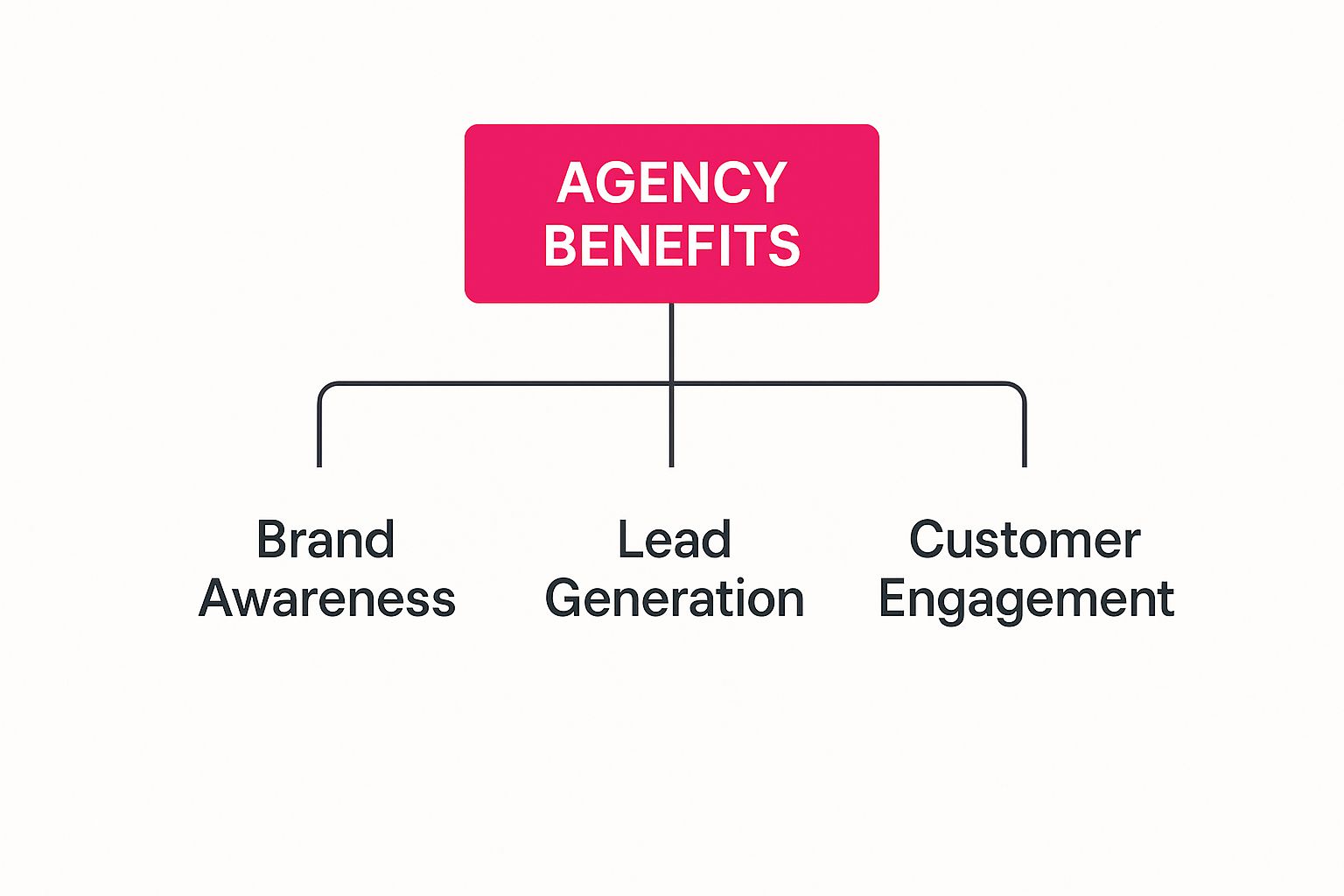
As the diagram shows, an agency's coordinated efforts lead directly to tangible results like better brand visibility, more qualified leads, and stronger customer relationships.
Strategic Content Distribution
Creating brilliant content is only half the job. If nobody sees it, it might as well not exist. Strategic content distribution is all about getting your content in front of the right people at the right moment. This is where a lot of in-house teams stumble, letting fantastic assets collect digital dust.
An agency will build a multi-channel promotion plan tailored to your content and audience. This could mean sharing on the right social media channels, featuring it in email newsletters, participating in online communities, or even using paid ads to give it a boost. The goal is simple: maximize the reach and impact of every single piece of content.
Performance Analytics and Optimization
The final, and perhaps most crucial, piece of the puzzle is performance analytics. A data-driven agency doesn’t guess what works—it measures everything. Using analytics tools, they track key performance indicators (KPIs) to see how content is performing against the goals set out in the strategy.
They look at metrics like organic traffic, conversion rates, engagement, and the quality of leads generated. Those insights are then fed directly back into the strategy to refine and improve it over time. This continuous optimization loop is what ensures your content marketing gets more effective and delivers a better return on your investment month after month.
How to Measure Your Content Marketing ROI
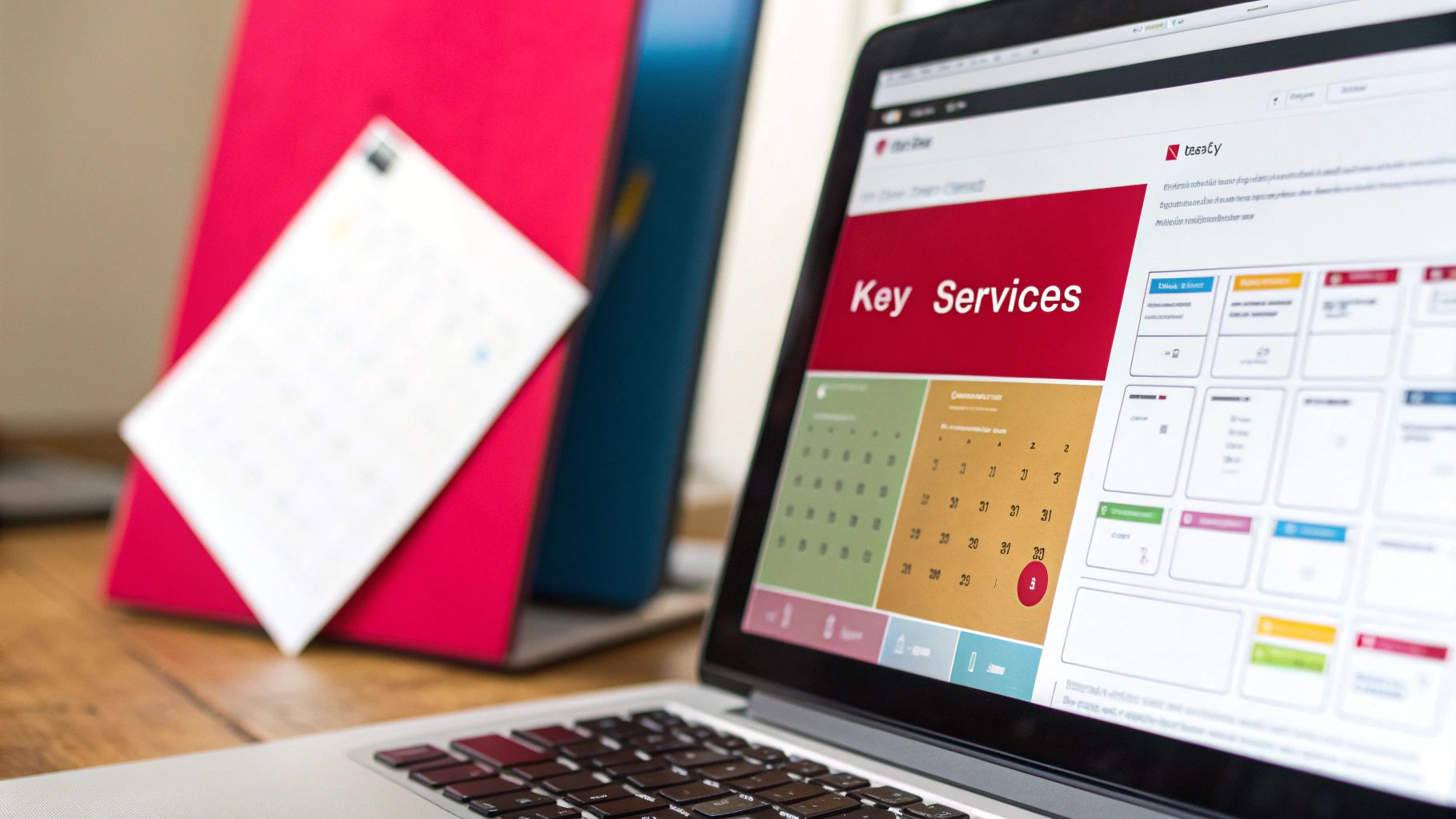
It’s easy to get a rush from a sudden spike in social media likes or a jump in website visitors. These are often called "vanity metrics" for a reason—they feel great, but they don't necessarily tell you if your business is actually growing. The real story of content marketing success is found in its return on investment (ROI), the actual, tangible value it delivers.
A seasoned content marketing agency knows how to look past the surface-level numbers. Their real value lies in tracking the key performance indicators (KPIs) that draw a straight line from your content to your bottom line. It’s a data-first approach that maps every metric to a specific stage of the customer’s journey.
This isn't just a fleeting trend; it's a fundamental shift in how modern marketing works. Here in our region, the digital marketing analytics market for the Middle East and Africa was valued at roughly $90 million in 2024. It’s also expected to explode, growing at a massive 20.6% CAGR through 2031. This shows just how critical data-backed strategies have become for anyone trying to cut through the noise.
Top-of-Funnel Awareness Metrics
At the very top of the funnel (ToFu), your primary goal is simple: get on people's radar. You're trying to attract a brand-new audience and introduce them to who you are. A sale isn't the goal just yet. Instead, think of it as casting a wide, intelligent net to pull the right kind of people in.
This is the digital front door to your business. The most important thing to measure here is how many people are finding you and how much more visible your brand is becoming.
Key metrics to keep an eye on include:
- Organic Traffic: How many people are finding your site through search engines like Google? A healthy, consistent rise here is a great sign your SEO and content are hitting the mark.
- Keyword Rankings: When people search for terms related to your business, are you showing up? Tracking your rank for critical keywords shows you're gaining a foothold where it counts.
- Social Media Reach and Impressions: This tells you how many unique people saw your content. While it's not a direct sales figure, it’s a vital sign of growing brand awareness.
Mid-Funnel Consideration Metrics
Once you’ve grabbed someone’s attention, the real work begins. The next phase is all about nurturing that initial spark of interest and turning it into a genuine relationship. This is the consideration stage, or the middle of the funnel (MoFu), where casual browsers become truly engaged prospects.
Your focus pivots from broad visibility to active engagement. You're now measuring how many people are taking that next step, showing they're genuinely curious about what you have to offer.
A lead is more than just a number; it represents a potential relationship. The quality of your leads, not just the quantity, is what truly fuels sustainable business growth.
Important metrics for this stage are:
- Qualified Leads: How many of the contacts you're generating actually fit your ideal customer profile? You can track this through demo requests, consultation bookings, or valuable content downloads.
- Email Sign-ups: An email list is an audience you own. This number shows how many people have raised their hands and said they want to hear more from you.
- Time on Page and Bounce Rate: Are people actually sticking around to read what you've written? High time-on-page and low bounce rates are strong indicators that your content is resonating with your audience.
Bottom-of-Funnel Decision Metrics
This is where the rubber meets the road—where your content marketing efforts turn directly into revenue. The bottom of the funnel (BoFu) is all about one thing: conversion. Here, you're measuring how well your content persuades qualified leads to pull out their wallets and become paying customers.
These are the numbers that get your finance team excited. Getting this right proves that content isn't just a creative hobby; it's a dependable engine for business growth. As you assess your performance, it’s also helpful to know how to measure social media ROI as part of your holistic strategy.
Critical bottom-funnel metrics include:
- Customer Acquisition Cost (CAC): How much are you spending to bring in a new customer via content marketing? A winning strategy will consistently drive this number down over time.
- Conversion Rate: What percentage of your leads ultimately make a purchase? This is the most direct measure of how persuasive your content really is.
- Revenue Attribution: Can you point to a specific blog post, ebook, or webinar and connect it to a sale? This is the holy grail, as it closes the loop and proves the financial impact of your work.
By focusing on these specific marketing performance indicators, you can move beyond vanity metrics and build a clear, data-backed picture of your content's true value.
A Framework for Selecting the Right Agency
https://www.youtube.com/embed/lPRRu7N29cw
Choosing a partner to manage your brand’s voice is a big deal. It’s less like hiring a vendor and more like bringing a key strategic player onto your team. A methodical approach is the only way to ensure you find a partner who not only delivers fantastic content but also clicks with your company culture and long-term vision.
Think of it like building a house. You wouldn't hire a builder without walking through their previous projects, understanding their process, and making sure they really get what you want. The same level of due diligence applies here. You need a solid framework to evaluate potential content marketing agencies and make a smart choice.
This isn't just about checking boxes. It’s about digging deep into what makes a great agency partnership tick—from their creative spark and strategic chops to their team dynamics and how they report back on results.
H3: Dissect Their Portfolio and Past Success
The most concrete proof of an agency's skill is their past work. A strong portfolio is more than a gallery of nice-looking articles; it's a collection of success stories. Don't just skim it—dig in.
Look for case studies in your industry or a similar one. An agency that has helped a B2B tech company crush its goals has a different playbook than one specializing in B2C fashion. Relevant experience means they’ll get your audience’s problems and speak their language right from the start.
And pay close attention to the results. Did their work drive a 300% jump in organic traffic? Did they generate a real, measurable increase in qualified leads? Hard numbers and data-backed outcomes are infinitely more valuable than vague promises about "boosting engagement."
H3: Scrutinize Their Strategic Process
Great content is never an accident. It's born from a rock-solid strategic process. When you're talking to potential agencies, ask them to walk you through how they'd tackle your brand's challenges. A top-tier agency won't just talk about making content; they’ll talk about using content to solve your business problems.
Their process should always start with a deep dive into your business. This includes:
- Audience Analysis: How will they figure out who your ideal customers really are?
- Competitive Landscape: What’s their method for analyzing what your competitors are doing, both right and wrong?
- Goal Alignment: How do they plan to tie every piece of content directly to your most important business goals?
- Content Pillars: What are the core themes they'll focus on to build your brand’s authority?
"A strategy without data is just an opinion. The right agency partner will be obsessed with understanding your audience and market before they ever write a single headline."
If an agency immediately starts talking about how many blog posts they can write without laying this strategic groundwork first, consider it a major red flag. For a better sense of what this process looks like, our guide on building a powerful content marketing strategy breaks down the kind of meticulous planning that leads to real success.
H3: Verify Their Team Expertise and Cultural Fit
You're not just buying a service; you're investing in the people who deliver it. It’s critical to know who, exactly, will be working on your account. Are they experienced strategists and sharp writers, or will your project get passed off to a junior team? Ask about the specific people who will be dedicated to your brand and check out their backgrounds.
Beyond pure skill, cultural fit is everything. This agency will operate as an extension of your own team, so their communication style, work ethic, and values need to line up with yours. Do they seem proactive and collaborative? A good cultural fit builds a true partnership based on trust, which is essential for working through challenges and growing together.
To help you get this right, we've put together a checklist of key questions.
The Ultimate Agency Vetting Checklist
Use this table during your evaluation calls to make sure you're covering all the bases and comparing agencies effectively.
| Evaluation Area | Key Question | What a Great Answer Looks Like |
|---|---|---|
| Industry Experience | Can you show us case studies from clients in a similar space? | "Absolutely. We helped a company just like yours increase their organic leads by 150% in 12 months. Here’s exactly how we did it…" |
| Strategic Approach | What's your process for developing a content strategy? | "It starts with a deep-dive workshop with your team to define KPIs, followed by audience research, competitor analysis, and keyword mapping. Only then do we build out content pillars." |
| Team Structure | Who will be our day-to-day contact and who will be creating the content? | "You'll have a dedicated Account Manager as your main point of contact. Your content team consists of a strategist, two senior writers, and a designer, all with experience in your niche." |
| Performance Reporting | How will you measure success and what do your reports look like? | "We track KPIs tied directly to your business goals, like lead generation and conversion rates. We provide a custom dashboard and monthly performance reviews to discuss what's working and what's next." |
| Client References | Could we speak to one or two of your current clients? | "Of course. We'd be happy to connect you with [Client Name] and [Client Name]. They can share their firsthand experience working with our team." |
A confident agency will always be transparent. Don't be shy about asking for client testimonials or, even better, references you can speak with directly. Hearing from their current clients gives you the unfiltered truth about what it's really like to work with them, helping you make a final decision with complete confidence.
Why Local UAE Expertise Matters

The UAE isn't just another pin on the global map. It has its own rhythm, its own cultural codes, and a unique set of consumer expectations. Hiring an international agency without that deep-seated knowledge can feel like sending a beautifully written message in the wrong language—the effort is there, but the meaning gets lost in translation.
A specialized regional agency has a powerful advantage because they don't just study the market; they're a part of it. This local insight is what separates content that truly connects from a campaign that feels like a clumsy, tone-deaf imitation. For any brand serious about making an impact here, local expertise isn’t a luxury; it’s a competitive necessity.
Navigating Cultural and Linguistic Nuances
One of the biggest hurdles for outsiders is grasping the subtle cultural nuances that define the region. This is especially true during key periods like Ramadan, Eid, or National Day, when marketing messages must be respectful, relevant, and timed perfectly. A local agency just gets it. They instinctively know the right tone to strike.
On top of that, the demand for high-quality Arabic content is absolute. Shoddy, machine-generated translations are spotted a mile away and can do serious damage to your brand’s credibility.
A local agency understands that true localization is more than just direct translation. It’s about transcreation—reimagining the core message with the right cultural context, idioms, and emotional weight to make it resonate deeply with a local audience.
This is how your brand learns to speak with fluency and respect, building genuine trust. It's a cornerstone of what makes local content marketing agencies so valuable.
Capitalizing on Regional Digital Trends
The digital scene in the UAE is unlike anywhere else. We're talking about some of the highest mobile and social media penetration rates in the world. Consumers here aren't just mobile-friendly; they're mobile-first. A local agency lives and breathes this reality.
They know which social platforms genuinely capture attention and how to create content that works for someone scrolling on their phone. This on-the-ground knowledge is vital for any campaign, a point we explore further in our guide to social media marketing in UAE. Their expertise also extends to finding and partnering with regional influencers who have real clout with your target customers.
The demand for sharp content is only growing. Projections show total advertising spend in the MENA region will climb past $15 billion by 2025, with digital channels swallowing the lion's share. The UAE and Saudi Arabia are at the forefront of this boom, especially in industries like luxury and tech that rely on sophisticated content to reach discerning audiences.
When you choose a local agency, you're not just hiring a service provider. You’re partnering with a team that has its finger on the pulse, ready to pivot your strategy to jump on new opportunities and connect with the unique habits of consumers here.
What’s Next for Content Marketing in the Region?
The digital world never stands still, and the sharpest content marketing agencies aren't just keeping pace—they're looking around the corner. To make a real impact in the UAE and the broader region, simply creating "good" content doesn't cut it anymore. The agencies leading the pack are already mastering the trends that will define success tomorrow.
Understanding these shifts is crucial when you're picking a partner to help grow your brand. You need an agency that can build a strategy to keep you one step ahead of the competition and connect with the next generation of customers. It’s this forward-looking mindset that separates the trend followers from the trendsetters.
AI is Here, and It’s All About Hyper-Personalization
Artificial intelligence has officially graduated from a buzzword to a must-have tool in any serious marketer's arsenal. AI gives agencies the power to sift through mountains of data and understand customer behavior at an incredibly granular level. The result? Hyper-personalization, where content isn't just for broad audience segments but is tailored for individuals, at scale.
Think about it: a potential customer gets an email or sees an ad that speaks directly to a challenge they were just googling. That’s the magic of AI in action. An agency that really gets AI can create these deeply relevant moments, turning your marketing from an interruption into a genuinely helpful conversation.
A truly innovative agency uses AI not to replace human creativity, but to supercharge it. They blend the emotional intelligence of a great storyteller with the raw analytical power of a machine to create content that really connects.
This shift toward data-first strategies is a huge driver of market growth. In fact, the Middle East marketing and advertising agency market is on a solid growth trajectory, projected to expand at a compound annual rate between 4.7% and 5% all the way to 2032. This surge is fueled by the demand for smarter, data-backed campaigns, making agencies with these skills invaluable. You can dive deeper into the evolving Middle East marketing ecosystem to see the numbers.
It’s All About the Experience: Video and Immersive Content
Static content is losing its grip. The future is all about pulling your audience in with interactive and immersive experiences. Here’s what’s gaining traction:
- Augmented Reality (AR): Imagine a customer "placing" your sofa in their living room with their phone before they even think about buying. That's AR.
- Interactive Quizzes and Polls: These formats turn passive scrolling into active participation, making your brand more memorable.
- The Reign of Video: From snappy, short-form clips on social media to in-depth videos that establish your expertise, video isn't going anywhere.
An agency that’s already playing with these formats is an agency built for what's next. They know that connecting with today's audience means creating an experience, not just publishing an article. When you partner with a team that's already building these next-gen skills, you're setting your brand up to win.
Frequently Asked Questions
Thinking about bringing in a content marketing agency? It's a big step, and you probably have a few questions. We've put together answers to some of the most common things business leaders ask when they're exploring this path.
What Does a Content Marketing Agency Typically Cost?
This is usually the first question on everyone's mind, and the honest answer is: it depends. Most agencies work on a few different pricing models, like a monthly retainer, a per-project fee, or even hourly rates.
For ongoing, consistent work, a monthly retainer is the most popular route. In the UAE, you can expect this to range from £2,000 to over £10,000 per month. A smaller company might land on the lower end of that scale for something like managing their blog, whereas a larger enterprise will invest more for a full-blown strategy that includes video, SEO, and paid distribution.
How Long Until We See Results?
Patience is key here. Content marketing is a marathon, not a sprint. While you might get some encouraging early wins—like a bump in social media engagement in the first few months—the real, needle-moving results take time to kick in.
You should start seeing meaningful growth in things like organic traffic and lead generation within six to nine months. Building true authority and landing those top search rankings is all about consistent, high-quality effort over the long haul.
This timeline gives the agency enough room to build a solid foundation of great content and allows search engines the time they need to find, index, and trust it.
Can a Small Business Actually Afford an Agency?
Yes, absolutely. Many agencies have specific packages or flexible models designed for startups and small businesses. The trick is finding a partner who understands your budget and can focus on the services that will give you the biggest bang for your buck right now.
For a small business, that might mean starting with a foundational service like SEO-driven blogging. Once that starts paying off, you can expand into more ambitious projects like video production. A good agency will help you prioritize for the highest possible return on that initial investment.
What's the Real Difference Between an SEO Agency and a Content Agency?
It’s a great question because there’s definitely some overlap. The main difference lies in their core focus.
- An SEO agency lives in the technical world. Their primary job is to get your website to rank higher on Google through technical site audits, building backlinks, and on-page keyword optimization.
- A content marketing agency is all about creating and sharing valuable stuff—articles, videos, guides—that attracts and connects with your ideal customer. SEO is a critical tool they use to make sure people actually find that content.
Here’s a simple way to think about it: The SEO agency builds the highway and puts up the signs, while the content agency creates the must-see destinations people are excited to drive to. When they work together, that's when the magic happens.
Ready to build a content strategy that drives real growth? Grassroots Creative Agency combines data-driven insights with compelling storytelling to connect you with your audience. Learn how we can elevate your brand by visiting our website: https://grassrootscreativeagency.com.
